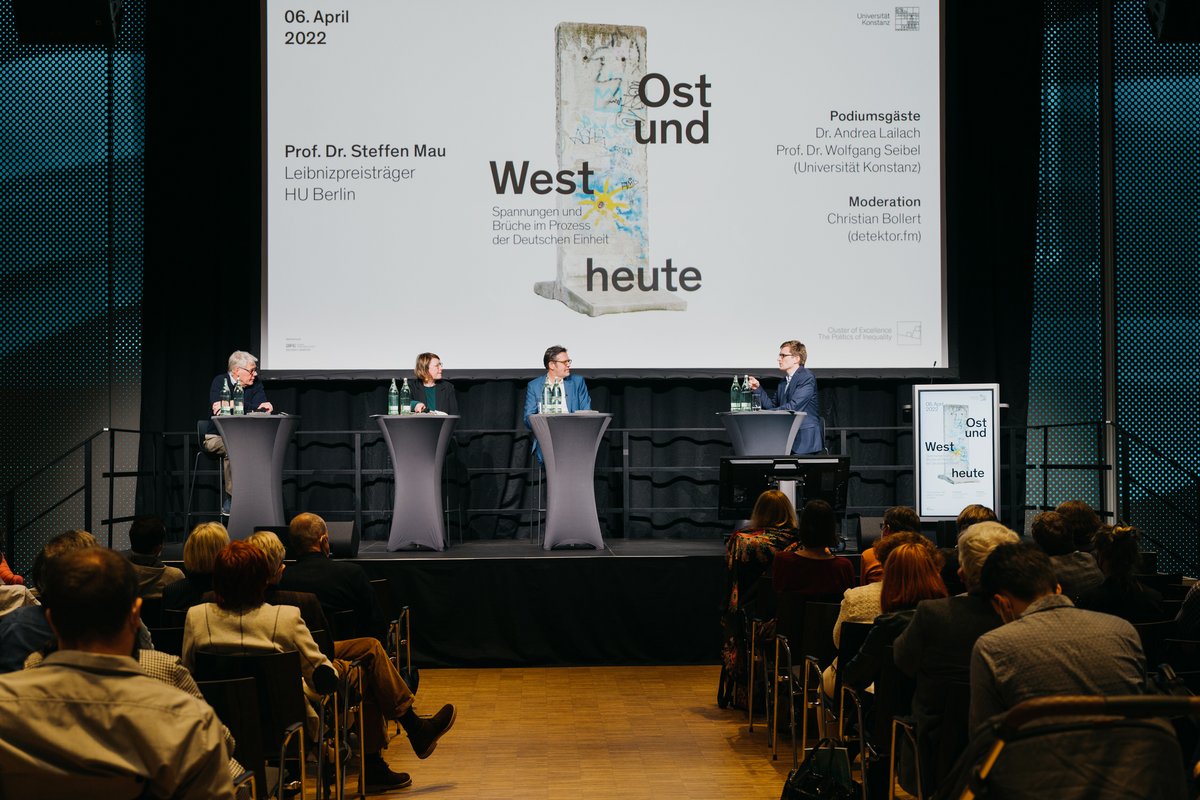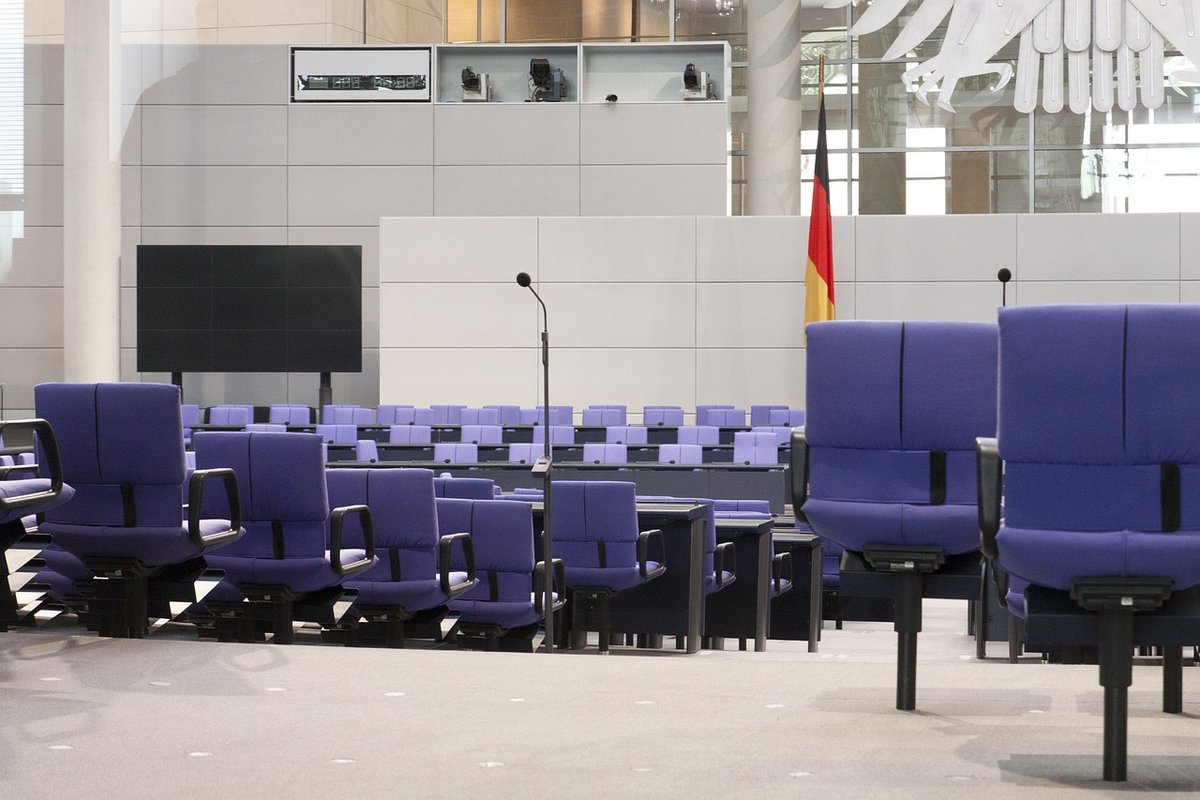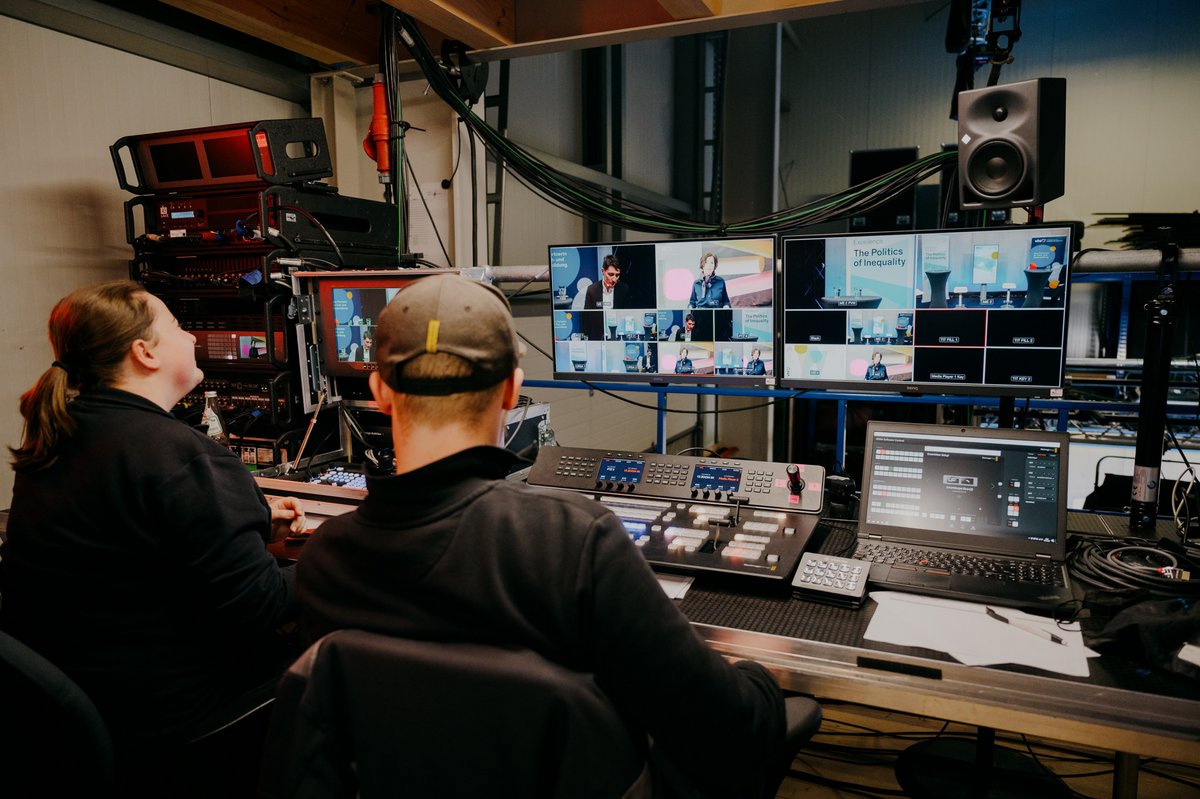Science has the responsibility to communicate. As a social and political science cluster, it is our task to make our findings available outside of academic publication activities, to political decision-makers, and to society. For this reason, we understand science communication and knowledge transfer as a joint "public outreach" approach with different tools. We have set two fundamental goals: on the one hand, we aim to make science useful for the common good. Based on our scientific findings, it is our vision to influence societal issues and simultaneously initiate groundbreaking processes. On the other hand, we place great importance on strategic science communication that targets various stakeholders. To achieve this, we focus on thematic priorities that involve impact, benefits, or changes for different groups.
Our strategic orientation is based on the following goals:
- Visibility
- Knowledge transfer
- Collaboration
- Transparency
- Inspiration
- Legitimation
To achieve these goals, we have identified five relevant target groups for our public relations efforts:

The scientific community, cooperation partners, researchers, and scientific institutions are important recipients of our communication and transfer strategy. Our goal is to initiate collaborations and strategic partnerships and to build networks. For example, in our External Senior Fellow Program, researchers can conduct research and establish contacts within our cluster for up to 6 months. Additionally, through a Working Paper Series, we provide insights into ongoing research projects. The In_equality Colloquium series has proven to be a central forum for interdisciplinary exchange, where researchers from the cluster and external scientists come together to discuss their results. We regularly organize Summer or Fall Academies for our Early Career Researchers in collaboration with renowned partner institutions and have been awarding the "In_equality ECR Excellence Award" since 2023. Finally, our international "In_equality Conference" has established itself as a global hub for inequality research.

It is our vision to produce knowledge that has a societal impact and reaches a broader audience. Our focus lies on the credible conveyance of scientifically sound information, communicating our research contents, and evidence-based insights to reduce existing inequalities. In addition to our website, social media, and press releases, this is achieved through public events, lectures, and panel discussions. Examples include our "Film & Talk" format in cooperation with a local cinema in Konstanz, events with "Volkshochschulen", presence at the Berlin Science Week, and more.
Our flagship publication, the "In_equality magazine", published twice a year, offers visually appealing insights into our research in an entertaining manner.

We believe that political actors can benefit from our research and the knowledge produced within the cluster. Therefore, our goal is to increase the visibility of our research among relevant decision-makers and to create networking opportunities. Many researchers from the cluster contribute their expertise to policy advisory roles in various committees and scientific advisory boards. Additionally, our policy papers, some of which are published in collaboration with the Berlin-based think tank Das Progressive Zentrum, provide concrete policy recommendations and politically relevant insights from our research. Researchers from the cluster are also regularly featured at their Progressive Governance Summit.

Given the relevance of labour market-related issues, challenges of digitalization, and insights into inequalities in the economy and the workplace, the business sector is also a relevant target audience. Currently, companies are primarily relevant as cooperation partners to conduct surveys in firms and among employees. An example of this is the Integration@Work project, with further measures and instruments currently in the planning stage.

Providing scientific resources and expertise to enable evidence-based journalism is our stated goal. One of our proven instruments is the Journalist-in-Residence Program, where we award up to 6-month fellowships to selected journalists and media representatives who pursue their own projects on the topic of "inequality" at our cluster and network with our researchers. The regular presence and mention of the cluster and its researchers in the most important national and international news media underline the societal and political relevance of inequality research.

